6 Ways You’re Ruining Your Gray Hair While Sleeping, Stylists and Dermatologists Say
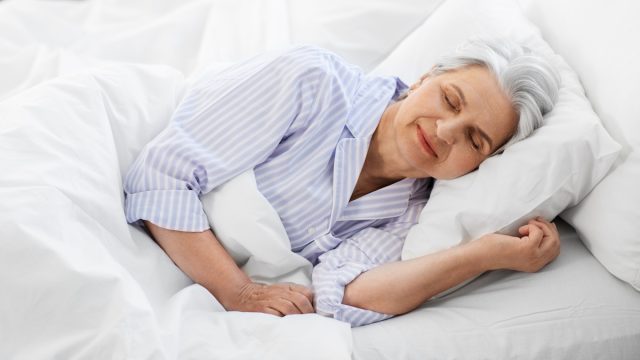
While everyone should tend to their hair with the utmost care, that’s especially true for people with gray strands. You see, gray hair is more delicate than fully pigmented hair and can be more prone to damage, dryness, and discoloration. One of the key times to give your hair the TLC it deserves is right before bed and while you sleep. However, there are serious mistakes many of us make each night that can damage gray hair. Here, dermatologists and hair stylists break those down, so you can avoid them and wake up with happy, healthy tresses.
READ THIS NEXT: The Best Colors to Wear If You Have Gray Hair, According to Stylists.
1
You sleep with it wet.
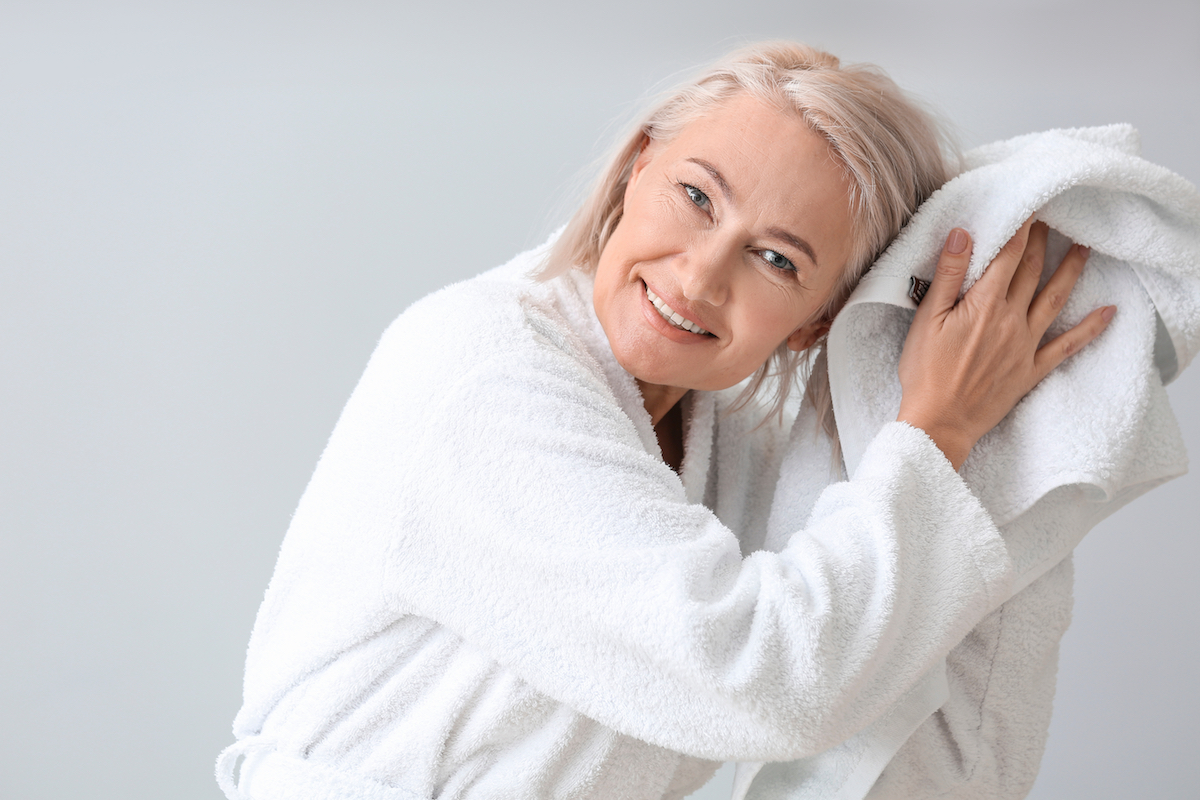
To keep gray hair in tip-top shape, it should be totally dry when you hit the hay.
“When hair is wet, it is in a weakened state, and sleeping on wet hair can cause it to tangle, break, and even split,” says Aanand Geria, MD, a board-certified dermatologist in Verona, New Jersey. “This can be especially problematic if you are prone to hair breakage or have curly hair already prone to tangling.”
Sleeping with wet hair can also lead to scalp issues and fungal infections, which can cause irritation, dandruff, and even hair loss in severe cases.
2
You use a rough pillowcase.
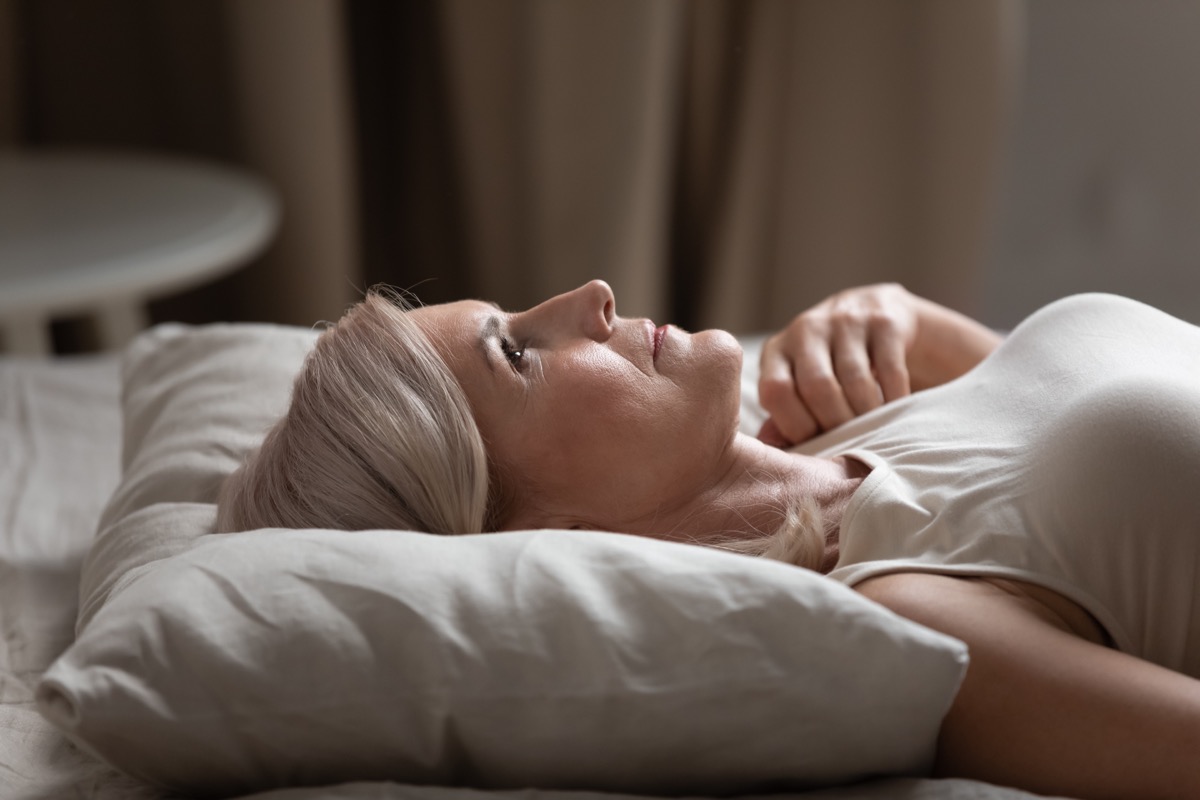
Your pillowcase could also be the culprit for damaged gray hair. In particular, ones made from fabrics like cotton, linen, and polyester blends can cause friction with your strands, leading to breakage, especially for fine hair, Geria explains.
“If you have grey hair and want to minimize damage while sleeping, use a pillowcase made from a smooth, soft fabric such as silk or satin,” Geria explains. “These materials help to reduce friction and keep your hair looking smoother and less tangled in the morning.”
As a bonus, silk and satin can also help your hair retain moisture. If you don’t want to swap out your bedding, use a silk or satin hair wrap to protect your tresses.
READ THIS NEXT: How to Embrace Keeping Your Hair Long After 50.
3
Or a colorful pillowcase.
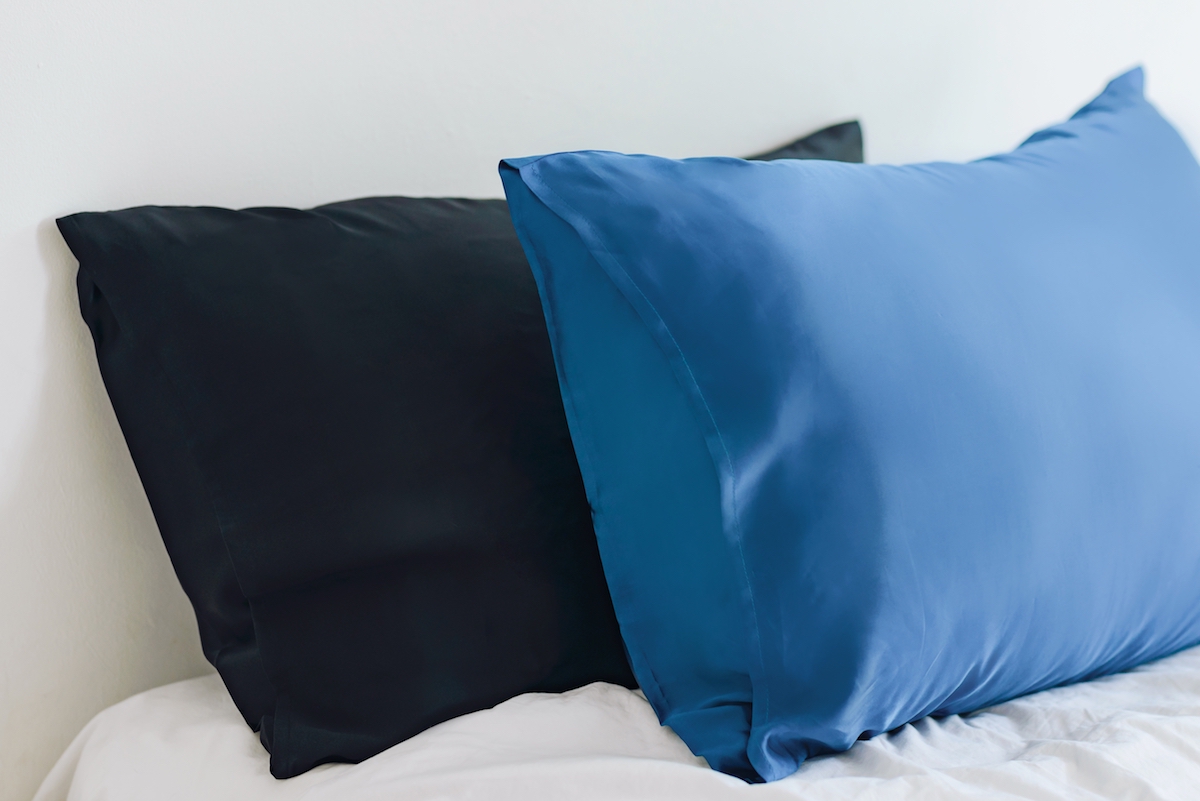
Interestingly enough, the color of your pillowcase can also play a role in your hair’s appearance.
“Grey hair can be very sensitive to dyes in fabric,” says natural hair stylist Darrius Peace. “Therefore, it is critically important to sleep on a white or light-colored pillowcase.”
Anything darker could stain your hair in an unflattering way.
4
You use damaging hair ties.
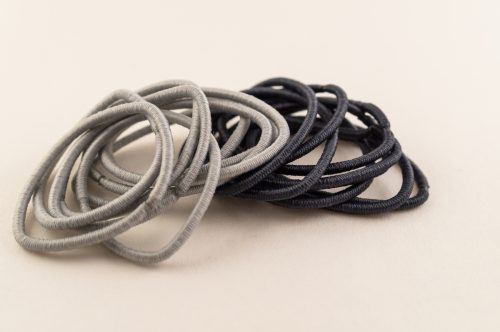
The accessories you use on your hair at night should be as gentle as possible. Geria suggests avoiding rubber hair ties as well as ones with metal parts that can snag and damage gray hair.
“Opt for hair ties made from a soft and gentle material like fabric or silicone, and ones without any metal parts to avoid this issue,” he says. Silk scrunchies fit the bill perfectly.
For more hair and beauty advice delivered straight to your inbox, sign up for our daily newsletter.
5
You sleep in a tight hairstyle.
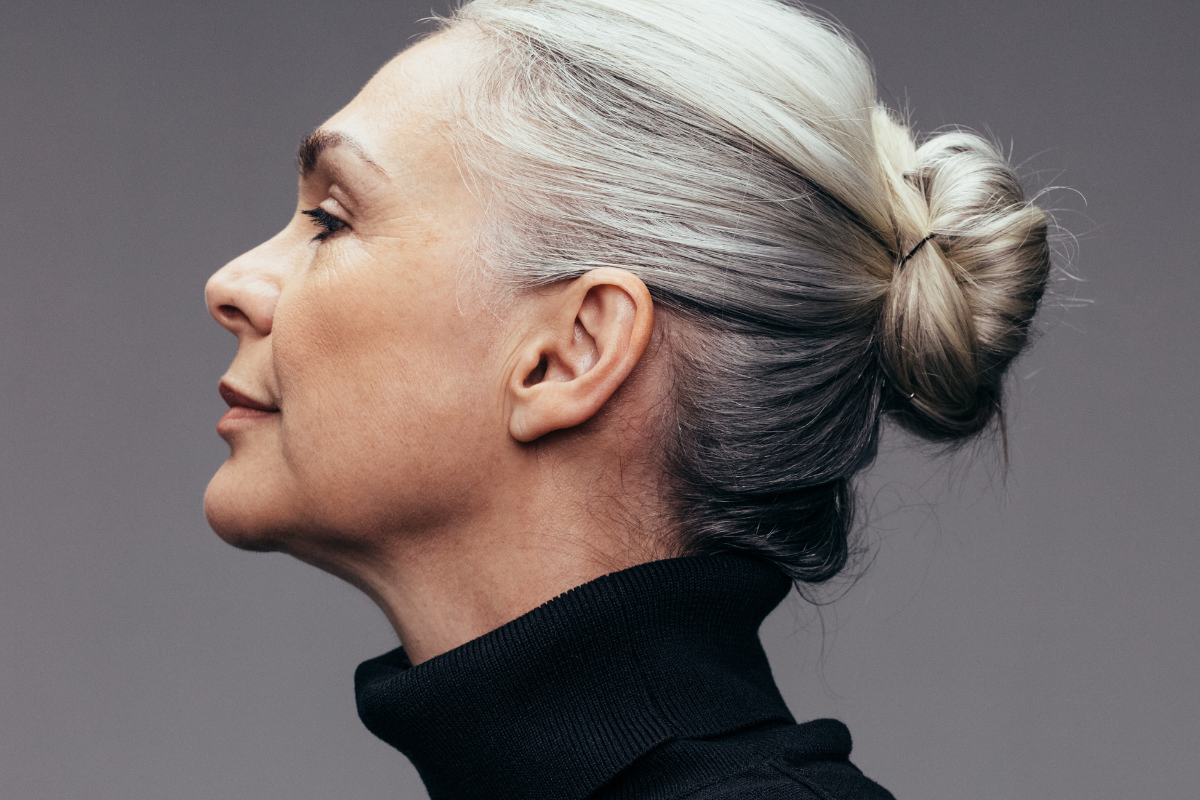
Your hairstyle should also be gentle.
“Tight ponytails and braids can cause tension and pulling on the hair, which can lead to breakage, split ends, and damage to the hair follicles,” says Kristina Baumann, a dermatologist at Peaches and Screams. “Instead, a loose braid or bun secured with a soft scrunchie or hair tie can help keep hair out of the face without causing damage.”
Again, you can top off the look with a silk or satin hair cap to prevent tangles while you sleep.
6
You skimp on products.
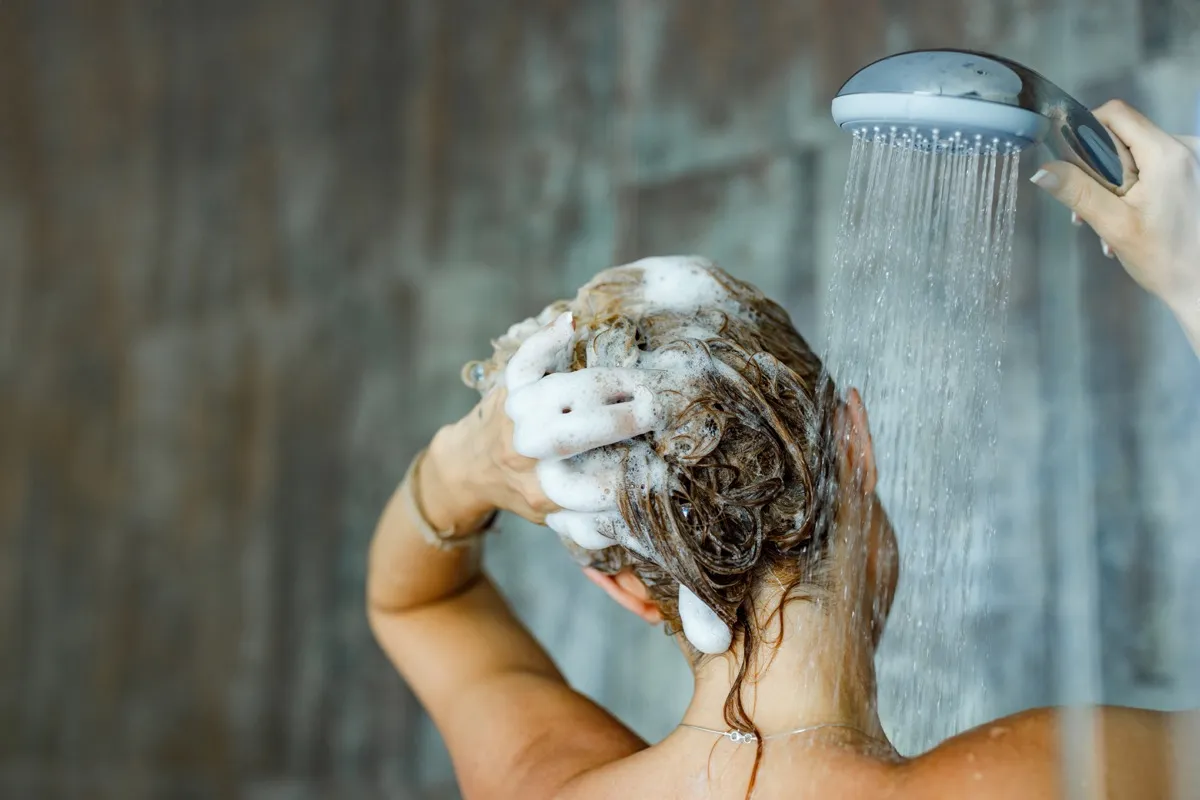
Your pre-bed routine is the ideal time to nourish your hair. Geria suggests applying a leave-in conditioner or hair oil to the ends of your hair before bed to keep it hydrated.
“This can help prevent dryness and breakage, which is especially important for those with grey hair that can be more prone to damage,” he says.
He also recommends the occasional overnight hair mask or scalp treatment. These products can deeply hydrate your hair and scalp, so you wake up with healthier, more lustrous hair.